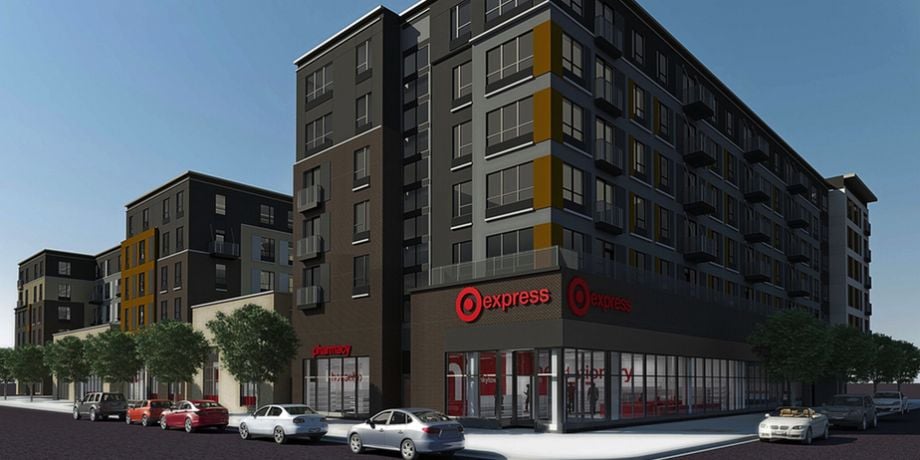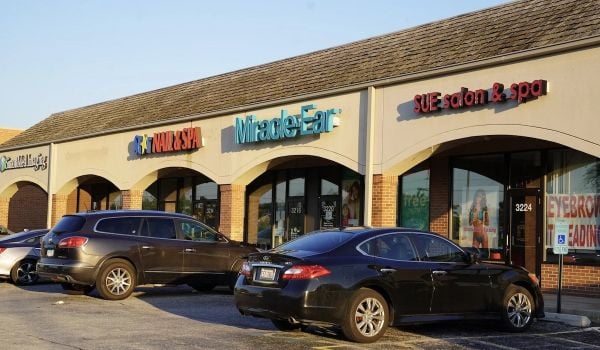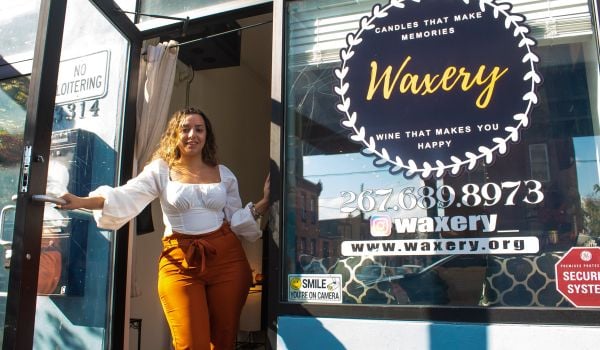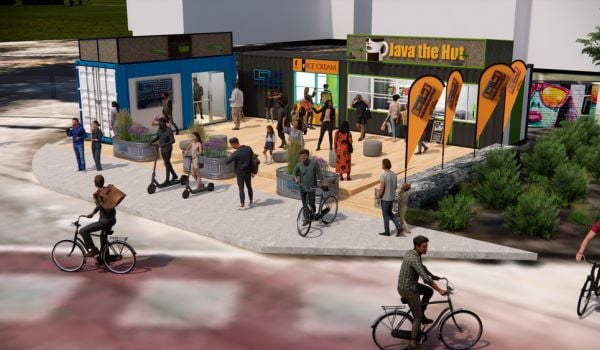Gone are the days of the cramped local convenience store stocked with trucker food, lit by energy-sapping fluorescent lighting and soundtracked by easy listening music. Chains across the country are getting glam makeovers (with in-store craft beer stations, sushi bars and hair stylists) in order to cater to younger, hipper and wealthier city-dwellers.
Target, one of America’s elite big-box retailers, has seen an opening in the urban pharmacy/convenience store/general store market and has started testing out locations in a format called TargetExpress — their version of a small-scale, fast-paced general store. These outposts will duplicate the atmosphere of Target’s suburban locations and bring some of the chain’s branded products to city storefronts. The company is betting on the idea that freshly minted urban-migrant millennials might crave the clean, climate-controlled Tar-zhay convenience of their youth.
“Many of them grew up with a Target experience,” Target’s (now former) executive vice president for property development John D. Griffith told the New York Times. “Now, they show up at their cool little bungalow they’re redoing, they’re five miles from downtown, and yet, Target is a little bit of an effort to get to.”
Target first branded itself as an urban-friendly retailer in 2012 with CityTarget, its third format. Unlike TargetExpress, the eight CityTarget locations are only slightly smaller than general Targets (between 80,000 and 100,000 square feet on average, compared to the average 126,000 square feet of their traditional stores). In fact, a new CityTarget under construction in Boston will actually be larger than their regular format stores, occupying more than 160,000 square feet near Fenway.
The TargetExpress format uses a different strategy altogether. The first Minneapolis location, which opened in July, is only 20,000 square feet. Five more have been announced to open in 2015: three in the San Francisco Bay Area, one in San Diego and one in Highland Park, Minnesota.

TargetExpress stores will have fresh food, beauty supplies, tech products (including cell phones and accessories), home decor, basic clothing supplies and a pharmacy. The locations near the University of Minnesota and University of California, Berkeley will have college-branded gear, to attract students.
“The TargetExpress guest lives or works in an urban area and is generally focused on immediate needs rather than stocking up,” a Target representative writes in an email. “They’re looking for everyday essentials and unexpected offerings in a convenient, easy-to-shop format, plus seamless access to all of Target. TargetExpress provides our guest an edited assortment that is locally relevant to meet urban guests’ quick trip wants and needs at an everyday value.”
These locations will make Target a more direct competitor of pharmacies like Walgreens and CVS, which have also been rebranding to appeal to growing cities. The reception of the Minneapolis TargetExpress has generally been positive, receiving only four or five star Yelp reviews. “As a student, I think that Target Express has been a great addition to the neighborhood! Prices are fair, especially compared to the CVS and Walgreens on campus,” writes one reviewer.
A woman who works down the street from the store spoke to the Star Tribune, mentioning her hope that an independent business would have opened up in the space, “But it’s not Walmart,” she said. “We’re all pretty Target-friendly around here.”
Walmart has also entered the small-format market with its Walmart Express, Neighborhood Market and Walmart to Go formats, but the locations of these stores seem to be in smaller heartland cities. Additionally, they might be trying to compete more with dollar stores than Target.
Regardless, the strategy is working for them. In the second quarter of this year, sales at Walmart’s smaller-format stores rose 5.6 percent, while its supercenters posted a 1.1 percent loss.
“Given the rise in urban populations, TargetExpress locations in urban communities are a strategic growth move for Target,” continues the Target representative.
It will be interesting to watch and see if the format is successful. If the convenience of the suburban big-box store can be brought to the city and millennials continue to snub car ownership, the potential social and environmental impact of this marketing maneuver could be huge.
The Equity Factor is made possible with the support of the Surdna Foundation.

Alexis Stephens was Next City’s 2014-2015 equitable cities fellow. She’s written about housing, pop culture, global music subcultures, and more for publications like Shelterforce, Rolling Stone, SPIN, and MTV Iggy. She has a B.A. in urban studies from Barnard College and an M.S. in historic preservation from the University of Pennsylvania.














